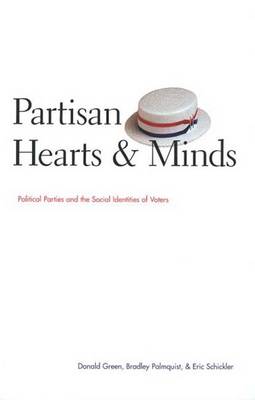A treatment of party identification, in which three political scientists assert that identification with political parties still powerfully determines how citizens look at politics and cast their ballots. Challenging prevailing views, they build a case for the continuing theoretical and political significance of partisan identities. The authors maintain that individuals form partisan attachments early in adulthood and that these political identities, much like religious identities, tend to persist or change only slowly over time. Scandals, recessions, and landslide elections do not greatly affect party identification; large shifts in party attachments occur only when the social imagery of a party changes, as when African Americans became part of the Democratic Party in the South after the passage of the Voting Rights Act. Drawing on a wealth of data analysis using individual-level and aggregate survey data from the United States and from other countries, this study seeks to offer a new perspective on party identification that will set the terms of discussion for years to come.
- ISBN10 0300092156
- ISBN13 9780300092158
- Publish Date 11 August 2002
- Publish Status Out of Print
- Out of Print 5 October 2010
- Publish Country US
- Imprint Yale University Press
- Format Hardcover
- Pages 272
- Language English
